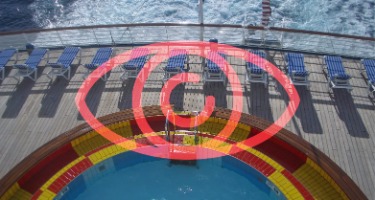Introduction
The U.S. Centers for Disease Control and Prevention (“CDC”) estimates that every year there are 3,960 fatal unintentional drownings.[i] “That is an average of 11 drowning deaths per day.”[ii] Each year, there are about 8,080 nonfatal drownings; averaging 22 nonfatal drownings per day.[iii] The CDC defines a “nonfatal drowning” as one when a “person survives a drowning incident with a range of outcomes, from no injuries to very serious injuries or permanent disability.”[iv]
“In the U.S. more children ages 1 to 4 die from drowning that any other cause of death except birth defects.”[v] “For children ages 1–14, drowning is the second leading cause of unintentional injury death after motor vehicle crashes.”[vi] In the states where I am licensed to practice law, North Carolina and Florida, the drowning deaths are 1.05 and 2.01 per 100,000 persons respectively. In the U.S., drowning is a leading cause of death for children.[vii]
The National Drowning Prevention Alliance (“NDPA”) is a 501(c)3 non-profit organization dedicated to reducing the incidence of drowning and preventing tragedy around water.[viii] The NDPA reports that drowning can happen in as fast as 30 seconds, almost 70% of childhood drownings happen during non-swim times, and 88% of child drownings occur with at least 1 adult present.[ix]
Safety Rules
Many states have their own administrative codes that regulate public swimming pools. These codes are intended to ensure corporations and local governments that put their pools to public use are meeting minimum safety requirements to protect their communities.
Florida has an administrative code requiring public pool owners or operators to supervise their use. Florida Administrative Code 64E-9.008 requires all owners or managers in charge of or working at a public swimming pool to be responsible for the supervision and safety of the pool.
North Carolina has an administrative code detailing the minimum safety provisions for public swimming pools as well. 15A North Carolina Administrative Code 18A.2530, for example, requires “Swimming pools shall have lifesaving equipment conspicuously and conveniently on hand at all times.” It also requires life-saving equipment, such as a shepherd hook, throwing rope, or a ring buoy.[x]
In addition to state administrative codes, there are national safety standards that responsible pool owners should also implement to protect the public. For example, many safety standards recommend public pools operate with “layers of protection” to protect their guests. The NDPA recommends the following:[xi]
Four-sided fencing with self-closing self-latching gates, door and window alarms, and safety covers can help make sure kids don't get to the water unsupervised.
Close, constant, and capable adult supervision anytime children are in or around water. Swimming where lifeguards are present is also recommended.
Keeping a phone poolside for emergency use so that an adult can call for help if needed. A land line with the pool’s physical address is best.
Pool owners and operators should enroll in a local water safety course that teaches proper rescue techniques.
Causes of Action
Typically, lawsuits against swimming pool operators or owners are for negligence. Negligence is a cause of action where an injured party alleges that another’s failure to use ordinary care was a legal cause of their injury.
To prove a negligence claim, an injured party needs to show that the swimming pool operator or owner owed that party a legal duty. Many states require property owners, including swimming pool operators and owners, to exercise reasonable care for the safety and protection of their guests.
Next, an injured party needs to show that more likely than not the pool’s operator or owner breached their duty by failing to exercise ordinary care. In the context of swimming pools, a failure to exercise ordinary care may include failing to follow state administrative rules or national safety standards. For example, if the swimming pool operator or owner was not monitoring the pool, then that failure may be evidence that they did not exercise ordinary care in operating the pool.
Finally, an injured party needs to show that the swimming pool operator or owner’s breach of their duty was a proximate cause of their injury. “Proximate cause is a cause which in natural and continuous sequence, unbroken by any new and independent cause, produced the plaintiff's injuries, and without which the injuries would not have occurred, and one from which a person of ordinary prudence could have reasonably foreseen that such a result, or consequences of a generally injurious nature, was probable under all the facts as they existed.”[xii]
In many states, foreseeability is an element of proximate cause. Regarding foreseeability, “all that the plaintiff is required to prove on the question of foreseeability, in determining proximate cause, is that in "the exercise of reasonable care, the defendant might have foreseen that some injury would result from his act or omission, or that consequences of a generally injurious nature might have been expected."[xiii]
As it relates to pool owners or operators, the question is whether it was foreseeable to them that by failing to include minimum safety protections such as monitoring, safety equipment, or other breaches of their duty to exercise ordinary care that a person may suffer a drowning injury in their pool. In many states, a jury decides whether the injury was foreseeable.
Damages
If the swimming pool operator or owner is responsible for a drowning injury, the victim is entitled to full compensation for their injuries. Typically, an injured party is able to recover economic and non-economic damages to try to make them whole for the harm they have suffered.
Economic damages typically include costs or expenses that can be calculated. For example, the cost and expense of past and future medical treatment is economic damage. In addition, lost earnings, and the loss of the ability to earn money in the future are also considered economic damages.
Non-economic damages are sometimes harder to calculate. Non-economic damages include the pain and suffering of the injured party (or their beneficiaries if the injured party is deceased). An injured party is entitled to recover non-economic damages for pain and suffering experienced in the past and to be experienced in the future.
Typically, a jury decides the amount of your non-economic and economic damages and attempts to use their best judgment to make you whole for your injuries if they find the swimming pool owner or operator accountable for your injury.
Conclusion
I am sorry if you are reading this because you or someone you love was injured in a drowning accident. I hope that you found the above helpful. As you can see, drowning injury claims have different considerations than other types of lawsuits. That is why it is important to retain an experienced lawyer to help you. Over my career, I have successfully resolved drowning claims and I am licensed to practice law in Florida and North Carolina and co-counsel claims in other states. If you would like to learn more about me or my practice, click here. If you want to request a free consultation, click here. As always, stay safe and stay well.
[i] “Drowning Data.” Centers for Disease Control and Prevention, Centers for Disease Control and Prevention, 17 June 2021, https://www.cdc.gov/drowning/data/index.html#:~:text=Every%20year%20in%20the%20U.S.,11%20drowning%20deaths%20per%20day.
[ii] Id.
[iii] “Drowning Facts.” Centers for Disease Control and Prevention, Centers for Disease Control and Prevention, 10 Mar. 2022, https://www.cdc.gov/drowning/facts/index.html.
[iv] Id.
[v] Id.
[vi] Id.
[vii] “Drowning Facts.” Centers for Disease Control and Prevention, Centers for Disease Control and Prevention, 10 Mar. 2022, https://www.cdc.gov/drowning/facts/index.html.
[viii] “Home.” NDPA, 28 June 2022, https://ndpa.org/.
[ix] Id.
[x] Id.
[xi] Id.
[xii] Hairston v. Alexander Tank Equipment Co., 310 N.C. 227, 233 (N.C. 1984)
[xiii] Id.




























